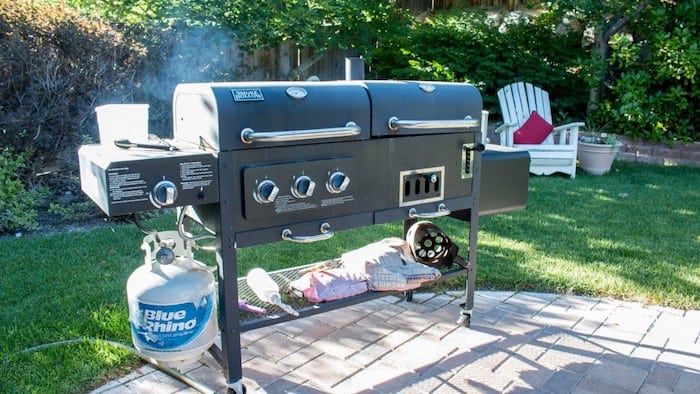
If you have recently moved to a different house that offers a propane line, you may want to convert your natural gas grill. Some people simply prefer using propane over natural gas because the former is readily available in most home improvement stores and gas stations. Making your grill propane compatible can also make it easier to carry it for picnics and camping.
My friends often ask me ‘can I convert natural gas grill to propane and whether there are any risks associated with it’. So, I decided to do a post including all that I know from personal experience and have learned through research. The answer is yes, you can do the conversion, but there are some risks involved that we will discuss below.
Due to various reports of consumer injuries, most of the modern grill manufacturers do not support the conversion of BBQ grills from one type of fuel to another. Hence, they do not supply any conversion kits. This appears to be a conscious decision taken to prevent amateur users from getting into accidental hazards in an attempt to change the fuel.
However, if for any unavoidable reason, you have to do a gas conversion yourself then you need to be careful and take precautions. Let’s not forget that the gas jets used for propane are of a much different size than the natural gas. If you do not have an idea of what you are doing, you may end up injuring yourself. So, here’s a quick tutorial to help you
Things You Will Need To Converts Natural Gas Grill To Propane
In order to change a natural gas connection to a propane tank, you will need three basic things – air shutter/mixer change, smaller burner orifices, and a hose with LP regulator. When connecting your grill to a propane tank, you must ensure that the pressure and volume are adequate enough to manage the load. Here are the steps to follow.
#. Step 1
First, check whether or not your gas grill supports the conversion and you will usually find this information in the owner’s manual that came with the grill. When not sure or if you have loosed the manual, we suggest that you contact the owner’s manual and ask if he can provide or recommend a conversion kit for complete transformation.
Sometimes, even though the gas grill model does not come with a conversion kit, the manufacturer may still have one that can send you for an additional fee.
#. Step 2
When you have the kit ready, shut off the natural gas supply to the grill, and then remove the gas line completely. Next, you must remove any side or front panels to access the barbeque parts within the grill.
#. Step 3
Now, take out the gas valves, regulators, and orifices that are meant for use with the natural gas supply and replace them with new grill parts that are propane compatible. Next, you must ensure that all the BBQ fittings are perfectly secured. Don’t close the panels so quickly.
#. Step 4
Check gas grill thoroughly for any leaks around the connections. Next, we need to carry out a small soap bubble test to ensure that the connection is done securely. For this, you will need to prepare a small quantity of soap water solution by mixing water with dish soap.
Now, turn on the gas connection but do not ignite the burners. Take a small amount of the soapy solution and pour it around the connections. If you see bubbles then it indicates that there is a leak. Turn off the supply and tighten once again and recheck until the bubbles stop coming.
# Step 5
In the above scenario (NG to LP conversion), the orifices in the grill go from large to small size, so there’s no way to modify them yourself. However, when doing a vice versa (LPG to NG conversion), the holes get larger so the same orifices can be modified by using special drills to enlarge the sizes. Seek a technician’s help when needed.
How to Convert a Propane Grill to Natural Gas
Comparisons Between Natural Gas And Liquid Propane
Most people have no idea that the natural gas they use is actually composed of various types of gases such as ethane, butane, methane, and propane. Propane is the ‘raw’ part of natural gas that is separated from the other gasses during the processing stage at most facilities. In the past few years, natural gas has emerged as the new alternative fuel for liquid propane.
While a natural gas installation costs a lot initially, the fuel costs much less in the long run. Natural gas tends to taste much cleaner but it is less effective than propane. You may consider natural gas for your outdoor kitchen or to create an in-built grill. However, if you are a beginner or occasional griller, we suggest that you stick with propane.
Use of energy (BTUs)
Liquid propane contains about twice the energy as compared to natural gas, hence it is much more efficient than the latter. In an hour, a natural gas burner burns up about 97 cubic feet, while a propane furnace burns only about 40 cubic feet.
One cubic foot of propane is 2,516 BTUs, and one cubic foot of natural gas is 1,030 BTUs. So, given the fact that liquid propane contains more than double the energy available in natural gas, it’s much more efficient than the latter
Cost factor
By looking at the fuel efficiency and cost, it can be said that natural gas is much cheaper than liquid propane. If you have a natural gas grill, converting to a liquid propane grill may involve extra charges plus the increased cost of fuel.
When natural gas costs $15 per 1,000 cubic feet, the same amount can get you about one million BTUs, which is equivalent to 11.20 gallons of liquid propane. If the propane fuel costs $2.50 per gallon, this indicates that natural gas is a low-cost alternative and you get a lot of savings in the long run.
Effect on the environment
Natural gas is known to be greener, and give out a clean flame. Liquid propane is also not toxic or damaging to the environment. The natural gas is mostly praised as a better and much cleaner energy alternative. It emits low levels of harmful emissions such as carbon dioxide, nitrous oxide, and carbon monoxide.
Propane is known to be one of the cleanest fossil fuels. Several tests by the U.S. Environmental Protection Agency indicate that propane-fueled vehicles emit up to 90% less percentage of carbon monoxide.
Safety measures
Both natural gas and liquid propane are highly flammable fuel, and they should be handled with care. Due to the infrastructure of natural gas lines, it can be difficult to identify and fix any leaks. The public utility commission and utility companies need to figure out how to repair and upgrade before taking action.
Key Differences Between Natural Gas And Propane
The most prominent difference between these two fuels is the method by which they are delivered at your home. Not every state or city has the option of natural gas or propane. So, this may be varied depending on the city you live in. You may be restricted to a single option or need to convert if you have moved recently.
The method in which the fuel is stored and refilled is also important differentiating factors. While the natural gas stays in a gaseous state and is delivered to homes using a pipeline, additional deliveries are not needed, but the infrastructure needs to be developed.
Building an infrastructure form the scratch includes digging up the yard to receive the pipeline. The cost involves converting all the home appliances to be compatible with natural gas, and hiring contractors to help you with the upgrade. For complete conversion, it may cost over $10,000.
Switching to propane due to a move or any other reason is comparatively easier as this type of fuel comes in portable canisters or storage tanks. The tanks are refillable and you need to go to a nearby retail location or request the service provider for delivery.
Benefits of Converting Natural Gas Grill To Propane
Whether switching from natural gas to propane was a conscious decision or brought about due to a sudden house shifting, there are several benefits of using a gas grill that uses liquid propane instead of natural gas for fuel requirements.
Liquid propane comes in refillable tanks that may cost you about $30 for a new tank, and the refills are done for $20 range. They are usually available at almost every hardware store around the nation. If you have portable propane canisters, you may take your grill with you to a camping site and still have fuel available.
As liquid propane delivers more BTUs for the money spent, it is often regarded as the preferred choice of fuel to run home appliances efficiently. If you don’t mind the harassment of having to fill up the canister, using liquid propane is the right move.
Propane is also considered as a suitable off-the-grid heating solution. This means your propane fuel is portable and it can still work when other systems in the house malfunction or you need to shift home.
Related Questions
How long does a liquid propane tank last?
Most of the mid-size barbecues use a regular 20-pound propane tank that can give you about 18-20 hours of grilling time. The larger grills can use a tank in as less as 10 hours. As you get more experienced with how your grill performs when the tank is full, you will be able to sense it when the fuel runs low.
Can liquid propane go bad?
Unlike the other fuel sources (diesel, kerosene, gasoline) that can degrade over time, liquid propane has no such expiration date. The potency also does not decrease when stored for a long time. You must however, ensure that the tank is clean and well-maintained when stored.
See Also:
Can You Use A Propane Grill In Cold Weather?
How to Light a Gas Grill without Ignitor (5 Steps)
Is It Safe To Use A Gas Grill On A Wood Deck?
Charcoal Grill Vs Gas Grill : Pros And Cons
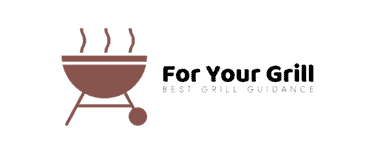
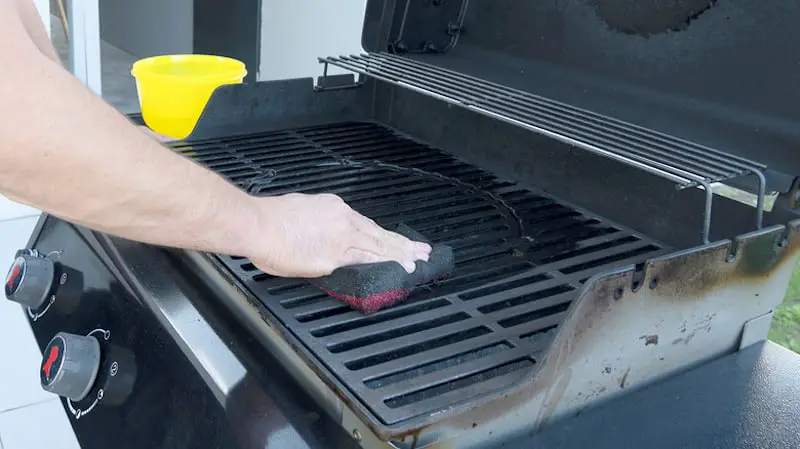
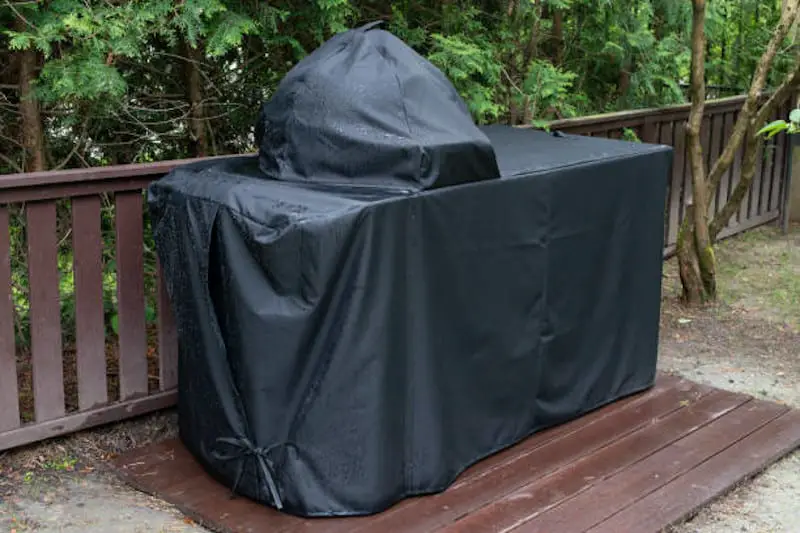
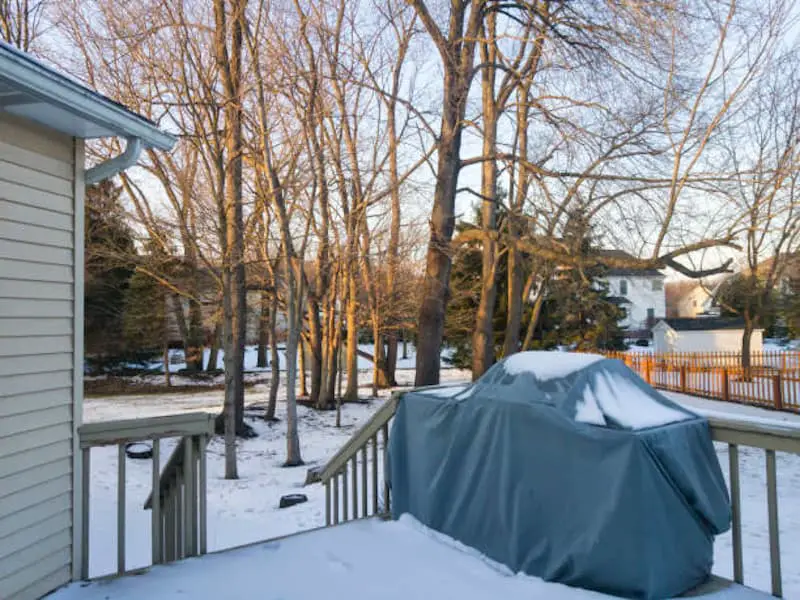

Leave a Reply